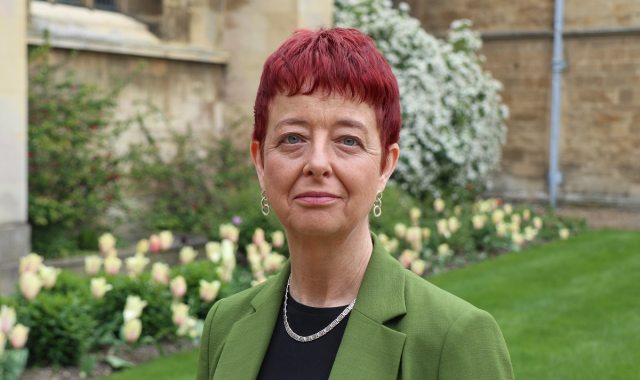Academic autonomy and promotion
- 06 July 2022
- 3 minutes
Dr Timothy Jones enjoys the academic freedom and teaching roles he combines as a Gonville & Caius College Fellow in Computer Science.
Tim is to be promoted by the University of Cambridge from October, as are Caius Fellows Professor Jason Scott-Warren in English, Professor Arif Ahmed in Philosophy, and Dr Emilie Ringe in Earth Sciences.
As a computer scientist in Silicon Fen – as Cambridge has been nicknamed in some circles due to the city’s wealth of software companies – Tim’s skills and experience in exploiting parallelism within microprocessors and compilers are in demand. But he enjoys the link with the College, undergraduate students, and the postgraduate students he supervises, as well as the autonomy academia offers.
“One of the benefits of being in academia is that you really do have the freedom to work on whatever you want,” he says.
“You really are free to follow your own ideas, and the ideas other people in your group have — those from my PhD students and postdocs, for example.
“When I came to Cambridge as a postdoc I always felt a bit disconnected because I was only at the lab. That’s part of the reason I wanted to be part of Caius, to have interaction with the students and I enjoy that a lot.
“I’m Director of Studies and I supervise Part 1a and Part 1b courses. You get to know your students very well. It’s nice to see them grow and go off and do other things, and one of my students is joining the lab for a PhD this year.”
As a University Reader, a recalibration of titles earlier in the academic year saw Tim entitled to call himself Professor. Some opted to do so for clarity of roles with international affiliations. However, he decided to wait until having applied for promotion and it being confirmed – and it happened at the first opportunity.
“It felt like the natural time to change my title,” he says.
“Becoming a professor has been my long-term goal. To have that title, with it comes the recognition of your work, acceptance in the international community, the thought the stuff you’re doing is important and worthwhile, and people elsewhere think that too.”
Tim completed his undergraduate degree at Bristol, his PhD at Edinburgh, where he continued as a postdoc and held a Research Fellowship jointly from the UK's Royal Academy of Engineering and EPSRC. He spent 2010 at Harvard and moved to Cambridge in 2011.
Two years after being appointed a University lecturer, Tim joined Caius in October 2017. Within a year was promoted to Reader.
Tim’s work on microprocessors looks at optimisation – making them faster, more reliable, or more secure, for example. Compilers take programs written in human-readable source code and translate it to the binary code used by the processors, and Tim also tries to make this more efficient, while examining the capacity for running different parts in parallel.
“The big theme throughout my work is the use of parallelism, so being able to exploit things that can be done in at the same time within a program, or to be able to add parallelism into the hardware so things work, usually faster, but sometimes more reliably,” he says.
Applications are throughout daily life, and the prospect of future technologies, such as self-driving cars, would rely on such microprocessors with high reliability requirements.
“These types of high-performance core are going to be used much more in future,” Tim adds.
“The volumes of data and the amount of processing the cars are going to need to do to be able to identify when someone’s about to cross the road or there’s a red light will require huge amounts of data, processing of machine learning models and stuff like that. There’s going to be vastly more safety critical processors in future.”
The work of Tim’s group could become commercialised, but much of it is freely available through open source platforms – another positive freedom of academia.


